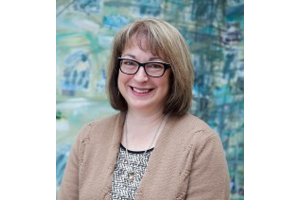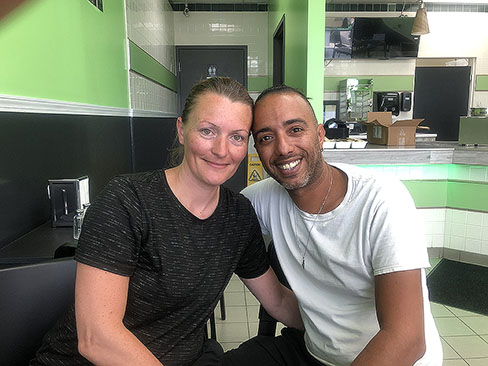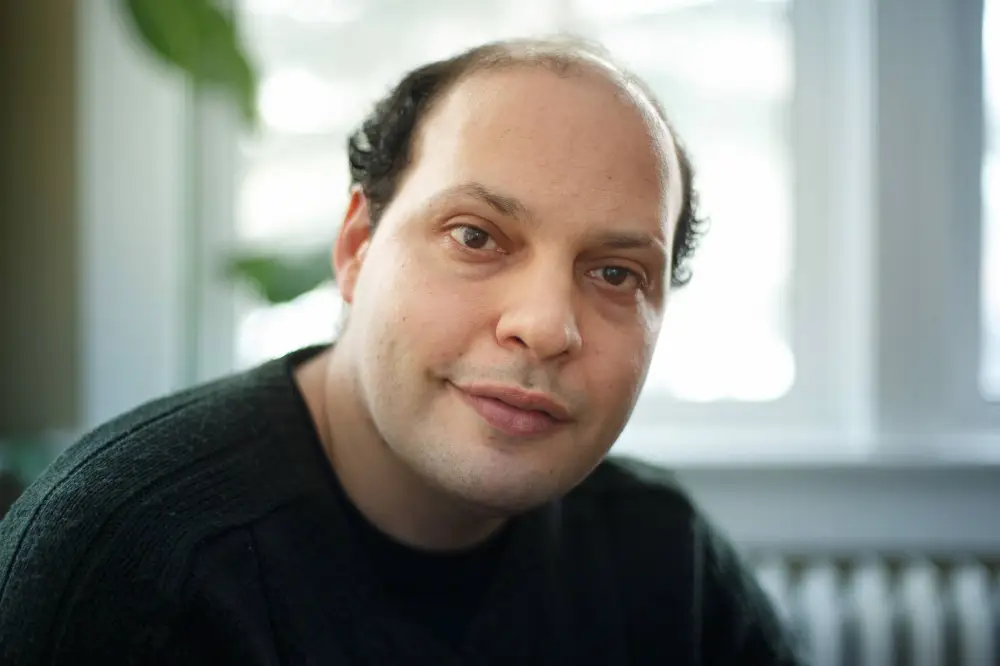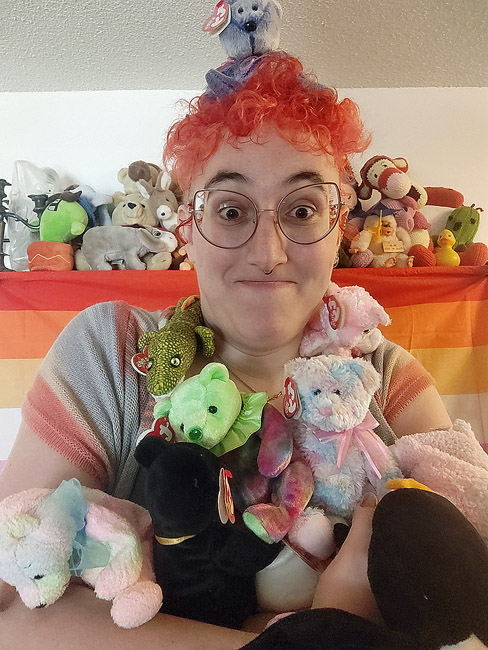Local News
Jewish Child and Family Service programs help people recovering from addiction within Jewish context

By MYRON LOVE With the financial stress and uncertainty that many people have been experiencing over the past year as a result of Covid lockdowns, there has been a nationwide increase in alcohol and drug use (source: Canadian Centre on Substance Use and Addiction) and – according to Ivy Kopstein, Jewish Child and Family Service’s Substance Use and Addiction Services Coordinator – members of the Jewish community have been affected parallel to the larger community.
While these uncertain times are proving difficult for us all, they are presenting greater challenges and risks to people with substance use disorders and/or mental health issues.
Kopstein adds that she and her co-worker, Dorit Kosmin, are seeing increased use of cannabis use as well during the pandemic. “A lot of people think that they’re not at risk if they use cannabis, but if you are using more frequently then it can impact your health.” For some people opioids and other dangerous drugs have replaced methamphetamines – most likely because the supply of meth has been diminished as a result of the lockdown measures. Unfortunately, adulteration of street drugs can and have caused dangerous and fatal outcomes (source: Addictions Foundation of Manitoba). No community is immune to these risks, as we have seen in our Jewish community in the past year.
And, while the Winnipeg chapter of JACS (Jewish Alcoholics, Chemically Dependent Persons and Significant Others) – which was an independent self-help group supported by JCFS in terms of space and resources – disbanded a couple of years ago, Kopstein reports that the JCFS’s own Substance Use and Addiction Support Service continues to provide services – as has been the case sine since 2012 – to individuals who struggle with, or are in recovery from, substance use or other addictive behaviors, and to loved ones, who want help to understand how to support their family member.
“Our goal,” she says, “is to provide support and resources, including Jewish recovery resources, to people in our community. One of the issues even pre-pandemic, has been isolation. People who may not have found a comfort level in 12-step or other self-help groups, or even if they have, may find connection with others in our community and discover what Judaism has to say about recovery. Therefore, our goal became to create a Winnipeg Jewish Recovery community. To that end, we organize group gatherings around Jewish holiday themes to provide support, community, and a Jewish perspective on recovery.”
An example of one such gathering, Kopstein notes, was a Chanukah program in 2019 featuring a Zoom session with Rabbi Mark Borovitz, the founder of Beit T’Shuvah, a Jewish Addiction Treatment Center in Los Angeles. “While we munched on latkes and salad at the AJCC, Rabbi Mark Borovitz led a discussion on what Chanukah can teach us about recovery,” Kopstein recalls. “Zoom was a new concept for us then. Who would have thought it would become a household name and so much part of our lives?”
To meet the needs of loved ones who are seeking ways to support a family member with substance use or addiction issues, Kopstein notes, JCFS has a program called CRAFT (Community Reinforcement and Family Training). CRAFT has been conducted with individuals or couples, but now is being offered in a virtual group format (The most recent 10-week weekly group session began last Wednesday.), so that family members have a safe and supportive “space” to learn a new approach, possibly different from what they have been doing, and share experiences with other families grappling with similar issues. Life can be filled with worry, frustration, and exhaustion – and an important part of CRAFT is to ensure loved ones practice their own self-care, while supporting their family member.
“When the pandemic hit and restrictions were imposed, our services had to shift to phone and video calls.” Kopstein adds. “Only when there are periods of relaxing public health orders, can we meet ‘in person’ while following protocols. The challenge is that what is often needed to heal, is connection. JCFS continues to find ways to help people find connection even in Covid-imposed isolation. “
As a result of the new circumstances, she adds, the focus with clients has shifted somewhat, to managing the daily challenges of recovery during a pandemic. “With that in mind,’ she says, “we planned “Recovery Talk” (which began on February 26), which is a virtual “drop in” group every Friday morning at 10 am, to provide a safe and supportive “room” to discuss any issues that relate to living in recovery, being Jewish, and healthy coping with a pandemic. We want to support the work towards resilience, strength and wellness that our clienthave begun.
As much as the global pandemic has resulted in isolation and sometimes tragedy, Kopstein notes, “in many ways, the world has opened to us virtually. More programs in other places are being conducted on-line and are widely available”.
She cites as examples Virtual Substance Use Awareness programs that were conducted in November 2020, in which, along with local experts, guests from Beit T’Shuvah (a Jewish addiction treatment centre in Los Angeles) and JACS Toronto were invited to speak. And for Chanukah (2020), clients participated in a virtual interactive program arranged by Chicago JACS, which was followed by a virtual “gathering” of our Winnipeg community complete with the delivery of latkes and Chanukah snacks to participants’ homes.
“We are currently developing an inspiring virtual Passover experience featuring Rabbi Joseph Shamash from the Elaine Breslow Institute at Beit T’Shuvah, which will also include an actual taste of Passover with seder items,” she reports. “We continue to connect with our colleagues across the US and Canada. JCFS Winnipeg is a partner in a Pre-Passover Jewish recovery retreat called “Stepping into Liberation” (March 13th& 14th), organized by Jewish recovery programs (including JACS Toronto and JACS Vancouver) across North America.”
Relatively new is the Winnipeg Jewish Recovery Facebook page where you can find recovery related postings, local programs and relevant programs from other communities, such as those mentioned above.
“Although there has been some progress,” Kopstein says, “we believe that there is still plenty of stigma in our Jewish community. This makes asking for help for a substance use or any kind of addiction and/or mental health issue, difficult for many. Addiction is a health issue. It’s hard to imagine someone not seeking help for cancer, diabetes, or a heart attack, yet it happens regularly with addiction. Connection with others and a supportive community, is so important for hope and healing, and for some, those life-saving phenomena may be more difficult to find.”
For more information about any of the above programs or services, or if you are concerned about your own or someone else’s substance use or addiction, please call JCFS Winnipeg @ 204-477-7430 or e-mail Ivy at ikopstein@jcfswinnipeg.org or Dorit at dkosmin@jcfswinnipeg.org
Local News
New Israeli restaurant opens in River Heights

By BERNIE BELLAN (July 6, 2025) It’s been a long time since our community has been able to welcome the opening of a restaurant that specializes in Israeli food.
That void is now going to be filled with the opening of The Green Falafel, at 1833 Grant (corner of Centennial – next to the Subway).

The restaurant is the fulfillment of a dream long held by the husband and wife team of Ariel and Eden Maudi, who have been living in Winnipeg the past 11 years.
Ariel, who was born in Israel and grew up in Beer Sheva, says that he worked in telecommunications in Ramat Gan for several years. He adds though that he had always dreamed of owning his own falafel stand in Israel, but life was difficult there and he decided to come to Canada as a tourist to see whether there were any opportunities here for him, Eden and their two young children.
Eden, who was born in Russia and moved to Israel with her family in 1996, stayed behind with the two kids, who were both pre-schoolers, while Ariel tested the waters in Canada first.
Ariel says he came to Canada as a tourist in 2013. His first stop was in Toronto, where he acquired his 1st class driver’s license. At the end of 2013 he moved to Winnipeg where he began working as a truck driver. Soon he found himself employed as a successful sales person at Vickar Nissan where, he says, he once achieved the status as the top car sales person in Canada. After working at Vickar Nissan for a number of years, Ariel began working as an installer for Bell MTS.
Meanwhile, Eden began working at a Walmart, later at the Costco on Regent.
But, when the opportunity to move into a space that had been previously occupied by another restaurant, but which had closed, became available, Ariel and Eden decided to open their own Israeli restaurant in an area that hadn’t seen Israeli food served since the controversial closure of Bermax Café in 2019.
The Maudis say that they will be serving a variety of Israeli dishes – all vegetarian, and that they will be fully kosher.
The “green” in Green Falafel, by the way, Ariel Maudi explains, comes from the cilantro and parsley that are added to the chickpeas. In addition, their pitas will be coming from Israel and will be baked fresh daily.
The Green Falafel will be open from 10-8 daily. Delivery will be available through Uber Eats and DoorDash.
Call 204-557-7837 for information.
Local News
Previews of shows with Jewish performers at this year’s Fringe Festival July 16-27

For show dates and venues go to winnipegfringe.com
By BERNIE BELLAN As has been our custom for many years now we try to find shows that have either Jewish performers or themes that would have particular appeal for Jewish audiences. Many of the Jewish performers at this year’s festival have been here before, but several are new. In no particular order here are blurbs about the shows we’ve found that fit the criteria I’ve just described. (By they way, if we’ve omitted a show that should be included in our list there’s plenty of time to get added to this post. Just drop me a line at jewishp@mymts.net.)

You’ve Been Served: A One-Woman Show About Divorce, Cults, and Coming of Age at Midlife
Noemi Zeigler
You are hereby summoned… to laugh, cry, and maybe belt out a Streisand number in solidarity. You’ve Been Served is a raw and riotous solo comedy by writer-performer Noemi Zeigler. It all begins when Noemi is served divorce papers on top of a garbage bin lid while taking out the trash—an undignified start to a full-blown midlife unraveling.
At 50, still clinging to her dream of becoming a singer, she falls under the spell of a music producer slash self-help guru, joins a spiritual cult, and, instead of landing a record deal, she lands in jail. Behind bars, with help from her long-buried inner child, she begins to reclaim her voice and her power. Turns out, dreams really do come true—just not the way she expected.
The show features vividly drawn characters—including a manipulative cult leader, a toxic ex-husband, and a jail guard named Roach who shares Noemi’s obsession with the fashion of Charlie’s Angels (the ‘70s TV version, of course.)
With salsa dancing, twerking, and a belting rendition of Don’t Rain on My Parade, Zeigler dives into abandonment, reinvention, and self-rescue. As she confronts perimenopause, she discovers it’s not the end—it’s the new puberty. The show touches on grief, sexuality, and spiritual confusion, but Noemi’s childlike optimism asks: What if your breakdown is actually your breakthrough?

You’re good for nothing… I’ll milk the cow myself
Written & Performed by Natacha Ruck
France, 1981: The first socialist president is about to be elected and young Natacha is ready to implement her own political platform. But first, she has to take down the schoolyard bully,emasculate the rules of French grammar and make off with grandmother’s chocolate.
If you think you know the limits of Jewish mothers, evil grandmothers and transcontinental lovers, meet Natacha Ruck’s family. This true tale of three generations of women, facing three world wars, is equal parts hilarious, shocking and zany.

A One Human Being, Potentially Comedic Performance of Beauty and the Beast NEW WORK!
Written & Performed by Alli Perlov
Be our guest! Local high school drama teacher Alli Perlov is back for a tale as old as time. Can she sing? Not really. Can she act? That’s debatable. Will you laugh? Oh… probably.
Perlov plays dozens of characters, some human, some animal, and many objects, in a comedic exploration of Beauty and the Beast.
In an homage to this brilliant musical adventure, through witty commentary and unstoppable energy, Perlov aims to entertain an audience that isn’t forced to be there like her students.

Hockey Sticks and Beaver Pie
Written & Performed by Melanie Gall
Take a trip around Manitoba. From the 30,000 ft. St. Adolphe snow maze to the Narcisse snake dens! After all, where else holds both the title of Slurpee Capital of the World and the Guinness Record for the most people simultaneously howling like wolves?
Deanna Durbin, Terry Jacks and Burton Cummings are among the many homegrown stars, and Hockey Sticks features their music along with original songs and the stories that make this province unique.
Starring Melanie Gall from past shows Piaf & Brel, Ingenue and Toast to Prohibition

Nerohilarity Exposed
Produced by Adam Schwartz
We all sometimes feel exposed, whether that’s as a fraud or a pretender.
The performers of the award-winning Neurohilarity show, Danielle Kayahara (Laugh Out Loud CBC), Carole Cunningham (Yuk Yuks, The Debaters), Adam Schwartz (Winnipeg Fringe) and Rollin Penner (Yuk Yuks, CBC, Rumors, Winnipeg Comedy Festival), apply a comedic spin to the experiences that make us feel insecure, stripping away the emotional weight with nittygritty jokes and stories that will have you laughing uproariously.
Brilliantly awkward.

A Lesbian in the Kitchen
Willow Rosenberg
Professional lesbian Willow Rosenberg takes you on a journey through the centuries, superstitions and tablespoons of her lifelong passion for baking in this spiritual successor to 2024’s Jenny Award-nominated A Lesbian in a Bear Store.
Whether you have a favourite spatula, bake once or twice a year, or live in constant fear of being told to “just fold it in”, this one-woman show about family, joy, tradition (but make it gay),
Judaism, comfort, home (but make it gayer*), love, chemistry and magic is for you!
*Who’re we kidding, it’s all gay!

Eleanor’s Story: An American Girl in Hitler’s Germany
Written & Performed by Ingrid Garner
(Ed. note: Although Ingrid Garner isn’t Jewish, we thought the theme of this show might have a special appeal for Jewish readers.)
Based on Eleanor Ramrath Garner’s best-selling memoir, this 16x internationally award-winning adaptation – performed by her granddaughter, Ingrid Garner – details Eleanor’s youth as an American caught in Second World War Berlin.
Punctuated with humour and accompanied by cinematic sound and video, Garner embodies her ancestors in this coming-of-age odyssey, delivering an account of war that is more relevant than ever.

Reviewing The Free Press 2
Benji Rothman
The Winnipeg Free Press has run amok, reviewing each and every Fringe show over the past two decades without consequence or recourse. Now, it’s their turn… again.
In this refurbished work that debuted at last year’s Winnipeg Fringe, Benji Rothman once again takes the Winnipeg Free Press to task. In this (mostly) new, (hopefully) hilarious 45-minute show, Rothman dives deep into their past and exposes their faulty journalism, imbalanced reporting and, of course, embarrassing typos.
Local News
Jewish performers at this year’s Winnipeg Folk Festival July 10-13

The Black Sea Station
Long ago, there were the klezmorim, itinerant musicians who roamed the back streets of Eastern Europe, playing at parties for meals and a few coins. The sound they honed then was a visceral exploration of life’s joy, and its loss; they could whip audiences into a frenzy of dancing, or bring them to tears with the mournful wail of a clarinet. Today, Winnipeg’s own The Black Sea Station is carrying on this tradition. Featuring Daniel Koulack (bass), Victor Schultz (violin) and Myron Schultz (clarinet) — cofounders of seminal local klezmer act Finjan — along with Moldovan accordion wizard Nikolai Prisacar and multi-instrumentalist Ben Mink, the quintet transports listeners to a time and place long past. Through a mix of original songs rooted in history, and traditional tunes spun up with modern zest, they whirl through the exuberant klezmer sounds of their Eastern European heritage, tending the old ways with deep love and respect.
The Black Sea Station will be performing Sunday, July 13, at 1:00 pm in Snowberry Field.

Romi Mayes
Romi Mayes has taken some hard knocks in her life, but she’s never faded away. For more than 25 years, Manitoba’s first lady of blues-rock has been a lynchpin of the Canadian roots scene. She earned that position the old-fashioned way, through her gritty, passionately emotive music. With her sizzling guitars and full-throated rasp, the Juno-nominated performer howls and purrs through razor-edged lyrics, rocking out wherever she can find a stage. She’s long been one of the hardest-working musicians on the circuit, keeping a busy slate of gigs and mentoring up-and-coming artists to get a foothold on the trails she blazed. Now, after a nine-year hiatus from the studio, Mayes has put her scintillating sound back on record with her long-awaited seventh album, Small Victories — a return that leaves no doubt, no matter the ups and downs, Mayes is here to stay.
Romi will be performing Friday, July 11, at 1:00 pm in Burr Oak.

Leonard Podolak (with Matt Gordon)
Ireland’s Matt Gordon is a fiddler and singer, whose fleet-footed clogging and thigh-slapping hambone has taken stages by storm since the 1980s. Leonard Podolak is a virtuosic master of the clawhammer banjo, who for decades has whipped up some of Manitoba’s wildest roots parties with his band, The Duhks. Put those talents together, and they can promise you this much: we’re all gonna have a real good time. Longtime friends and musical collaborators, Gordon and Podolak deliver an exhilarating trip through old-time Appalachian music. Their performances seamlessly blend intricate instrumental lines with heartfelt singing and dazzling dance. They’ve teamed up on a few records over the years, including 2020’s bigband extravaganza Power Wagon: Live At Shanley’s. But the best way to experience this duo’s toe-tapping, hand-clapping chemistry is to see it live.
Podolak and Gordon will be performing A concert with a side of clogging Sunday, July 13, at 3:00 pm in Folk School.
